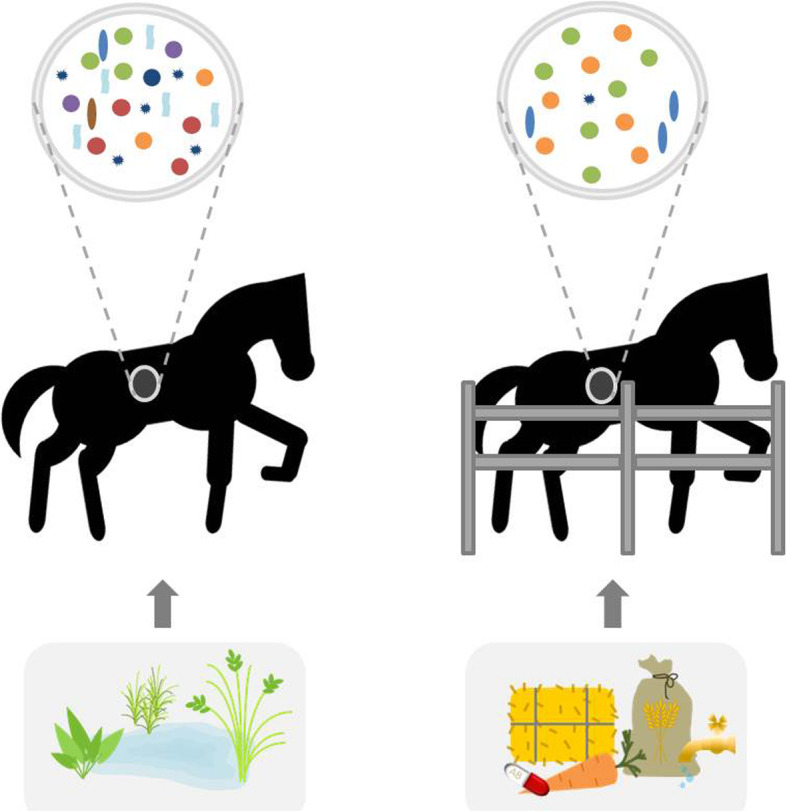Fig. 2.

The anthropogenic impact on horse microbiomes. Microbiomes of non-domesticated horses (left) include a more diverse spectrum of microbiota compared to those of domesticated horses (right). Beyond age, differences in housing and pasture habits [164], composition of feeding diets [165, 166], contact with humans, veterinary health care and medication seem to be among the most influencing factors for equine microbiomes [101]. Interestingly, similar observations are available for the humans, since indigenous populations seem to have a much broader spectrum of microbiota compared with industrialized countries [104]s
